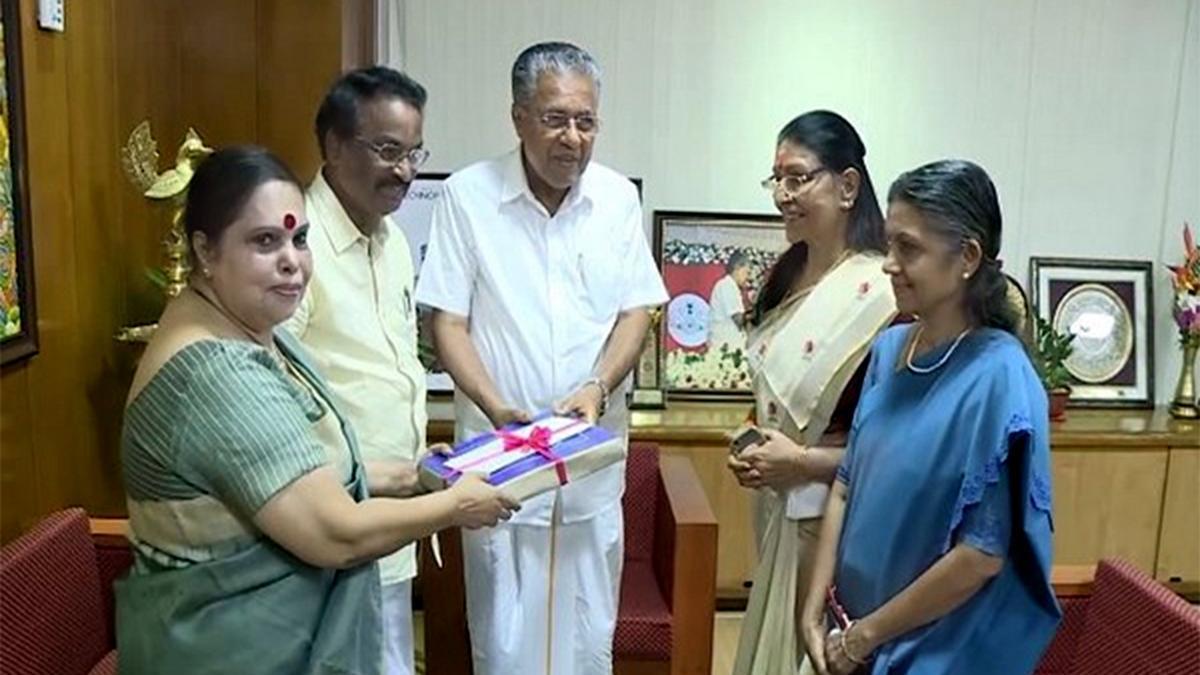
The K. Hema Committee report, highlighting the severe issues faced by women in the Malayalam film industry, was published on Monday, five years after its initial submission to the Kerala government. The 235-page document chronicles disturbing accounts of sexual exploitation, discrimination, drug and alcohol abuse, wage disparity, and often inhuman working conditions.
The exhaustive report, published after redacting the names of the witnesses and the accused, points out that the Malayalam film industry is controlled by a close-knit group of influential male producers, directors, and actors—a faction that a prominent actor described as a “mafia.” This power group holds the capability to banish anyone from the industry, ensuring a climate of fear and silence.
Notably, the report confirms the existence of the rumoured “casting couch” practice in the industry, where demands for sexual favours are made even before women secure roles. Distinguished individuals in the industry have been implicated in these exploitative practices, with evidence such as video clips, audio recordings, and screenshots of WhatsApp messages provided to the committee.
The safety and well-being of female artists during shoots are heavily compromised. Multiple women reported feeling unsafe in their accommodations, often targeted by intoxicated men trying to forcibly enter their rooms. One harrowing account described an actress who, after a traumatic incident, had to portray the wife of her abuser the very next day. The notion that successful women owe their careers to “compromises” is actively perpetuated by some in the industry.
Fear of repercussions prevents many women from speaking out. The committee noted that several witnesses hesitated to disclose their experiences, concerned for their safety and that of their families. Many of these women have refrained from sharing their ordeals even with their closest relatives. They also avoid approaching the police, fearing powerful industry retaliation and cyberattacks due to their public profiles.
The Hema Committee’s efforts to gather testimonies were met with resistance. For instance, when the committee formed a WhatsApp group with industry dancers to discuss their issues, most participants left immediately after learning about the committee’s intent. Junior artists, often the most exploited, similarly refrained from sharing their experiences.
The industry’s “power group” exerts control over hiring and movie releases, warning producers against casting actors who fall out of favour.
. The Film Chamber of Commerce’s required No Objection Certificate (NOC) to release movies further solidifies this power. Production controllers play a significant role in getting individuals banned from the industry. Women in Cinema Collective (WCC) members, whose advocacy led to the formation of the Hema Committee, have been blacklisted for speaking out against the atrocities.
The report also highlights deplorable working conditions, particularly the lack of adequate facilities such as changing rooms and toilets on sets, especially in outdoor locations, leading to health issues like urinary infections among women. Alarmingly, some men, including a prominent actor, downplayed the seriousness of these issues during their depositions.
Junior artists face exploitation akin to slavery, working up to 19 hours without timely payment, as intermediaries misappropriate their wages. In one tragic case, a 70-year-old woman who suffered severe burns on set was not compensated for her medical expenses. Moreover, junior artists are excluded from film organizations, leaving them without representation or protection.
The absence of written contracts further exacerbates exploitation, depriving actors and technicians of their due remuneration. A cited example involves an actress, the title character in a movie, who was coerced into an intimate scene and left the set without compensation after refused to do more revealing shots. The director threatened to withhold deletion of already filmed intimate scenes unless she personally appeared in Kochi.
Remuneration for assistant and associate directors remains meager despite months of continuous work. They are often denied daily allowances, and their strenuous pre-production efforts go unrecognized as ‘work.’ One witness narrated an instance where a woman’s script, centered on gender justice, was significantly altered by a director, making her reluctant to claim authorship.
The Hema Committee raised concerns about the efficacy of Internal Complaints Committees (ICC), suggesting that members can be threatened or coerced by powerful individuals into dismissing complaints. Doubts about maintaining the confidentiality of information revealed to industry-constituted ICCs add to the complainants’ torment. The committee recommends the government to enact appropriate legislation and establish a dedicated Tribunal to address all issues faced by women in cinema.
This comprehensive report unveils the dark and hidden realities of the Malayalam film industry, calling for urgent systemic reforms to ensure safety, dignity, and equitable treatment for women in cinema.










